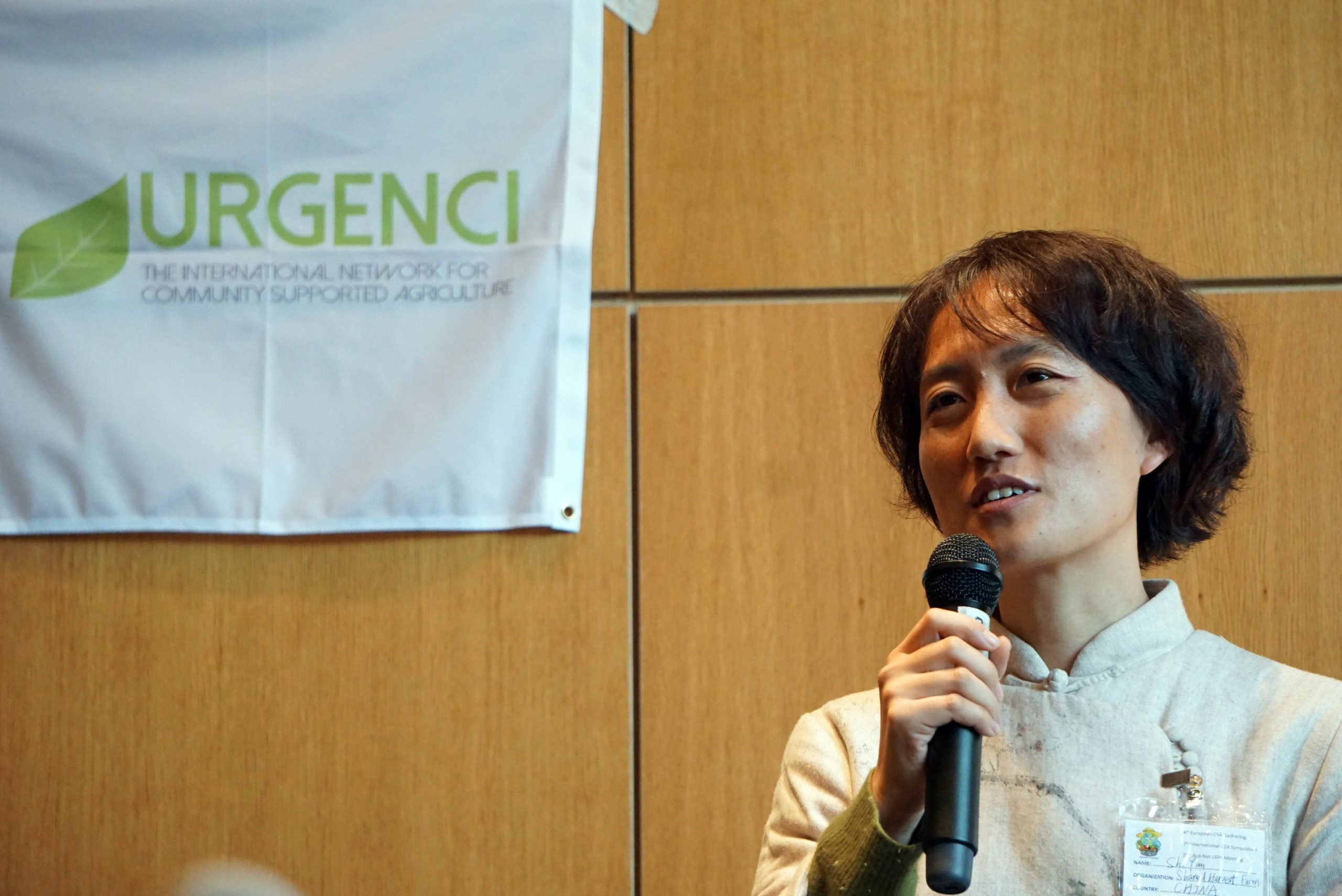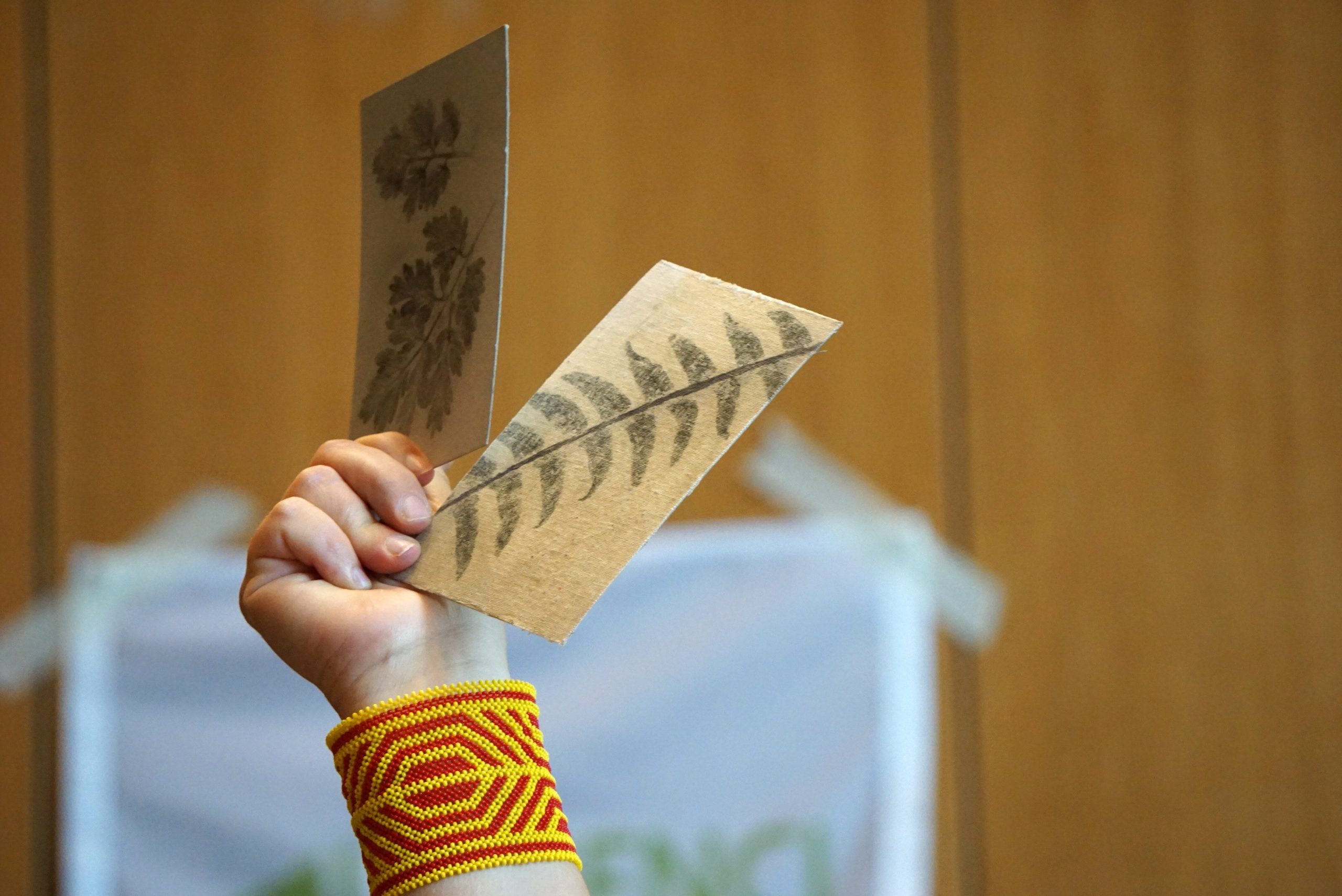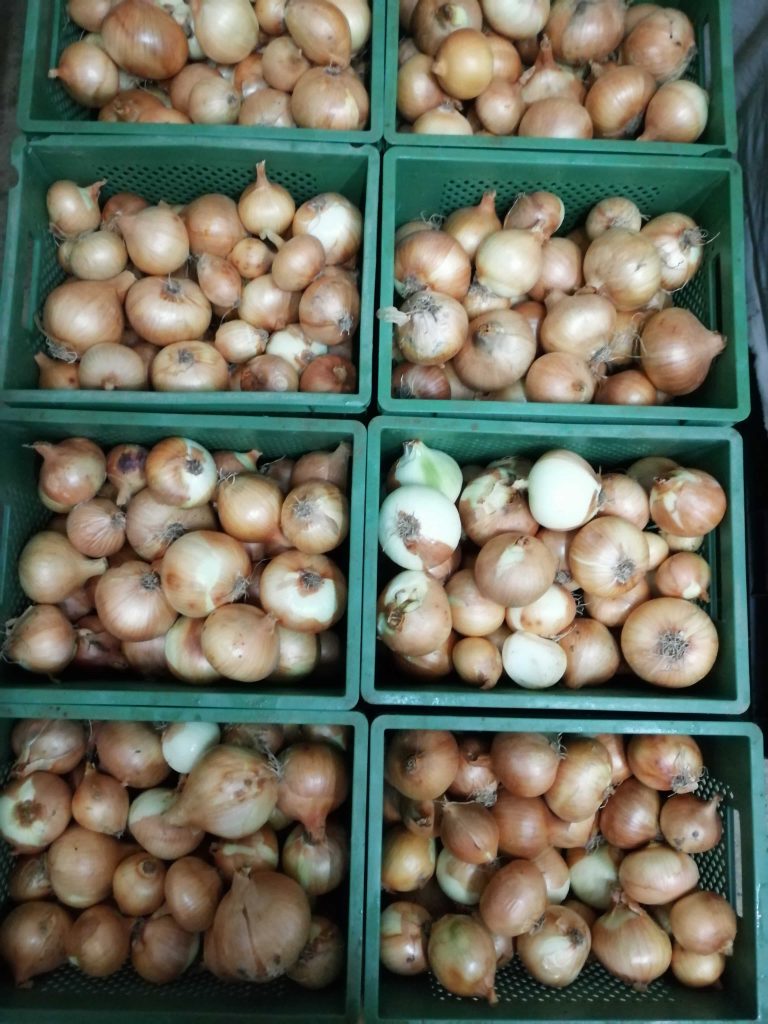International Network URGENCI, 7th April, 2020.
This statement is also available as a pdf (0,4 Mo) : URGENCI_Covid19_PR_20200407
The international campaign we are all engaged in to reduce our tragic losses to the Covid-19 crisis is just a rehearsal for the big campaign that lies ahead – to preserve and build sustainable local and territorial food systems that connect producers and consumers and provide healthy, nutritious food for all. We are learning a lot about the weaknesses and gaps in the global food distribution system. Communities are discovering that they cannot rely only on food that requires transportation across borders or even from distant regions within a single country. Nor can producers on large-scale industrial farms rely on migrant labour as they have done in the past. In some countries food is beginning to rot in the fields. Many local markets have been shut down. Supplies of critical items in supermarkets disappear quickly through panic buying and profiteering. In countries like India, where farmers are on lock down along with everyone else, middlemen are taking advantage of the crisis to buy at cut-price rates from the farmers and sell at high prices to those who can afford to pay.
Community Supported Agriculture (CSA)1, however, is quick to respond and is successfully facing the crisis. Isa Álvarez, a food activist from Spain, and the Vice-President of URGENCI, the International network for Community Supported Agriculture, describes the situation in the Spanish Basque country “The government recommendation has been to close the open air markets but the CSA networks are working more than ever. The only problem is that because of the restrictions to mobility, only the farmers are allowed to do the deliveries and they have to do it house by house.”
We are on the brink of a global food crisis, not because of lack of available food, but rather because it cannot be harvested or transported to consumers through the industrial long chain food system. The future genuinely lies in building stronger short food supply chains that allow local food sovereignty and traceability. As Bregje Hamelynck, a CSA vegetable grower from the Netherlands says,”The nearer the source, the stronger the relation between farmer and citizen, the more secure the food supply.”
We are also seeing a rapid rise in food prices making it difficult for vulnerable families to afford essential food items. And unlike 2008, when the food crisis was due to a lack of food, there is no such lack. Just a total breakdown in the supply and demand industrial system.
By contrast, local CSA farmers are adapting quickly to provide food to their communities in safe ways. As Ruby van der Wekken, from the Finnish CSA network, quoted “CSAs are not only the safest way to get food during this time, they are also part of the solution to have a healthier future.”
Farms can and do sell direct to the public. Open air CSA distributions of pre-ordered and pre-paid produce from farms are one of the safest ways of providing food, safer than indoor supermarkets! There are also many new, creative local platforms springing up to connect producers and eaters at local level. “In China, at the peak of the Covid crisis in January, demand increased by 300%” said Shi Yan, the pioneer of CSA in China and the co-President of URGENCI. “Our producers came under extreme pressure to meet the demand.”

Many new vegetable boxes are extensions of existing ethical platforms such as CSAs and local food co-ops, others are more opportunistic, as up to double the cost of CSA shares. Such high prices clearly exclude access for low-income groups. This violates one of the core values of Community Supported Agriculture, solidarity economy, and thus affordability that still ensures producers a decent livelihood.
In the current pandemic, Community Supported Agriculture weekly share distribution has been widely maintained, thanks to the safe nature of how it is done, and the hugely responsive reaction of both producers and consumers in ensuring that it is done in accordance with new, highly rigorous health and safety regulations. CSA shares are prepared upfront. This drastically reduces human contact with the food and between people. CSA is planned in advance. There is no need to gather, queue or stand in line at a check-out like in a supermarket. Each group can organize things so that the pick-up is staggered and there are never more than a small handful of people present at any one time. There are no cash transactions: everything is ordered and paid for in advance and paid for on-line or by cheque. As cash (both notes and coins) are a vector for virus transmission, this is an important aspect. Distribution is short and immediate. This reduces interactions and potential contamination. Correct social distancing is always observed. All necessary sanitary recommendations – washing hands frequently, wearing masks and gloves when touching food, and staying home when feeling at all sick are systematically observed. And finally where needed to protect the vulnerable, food can be delivered to your door. Just check with your local CSA to see. There are also many new initiatives to set up additional CSAs to provide greater supplies.
In many cases, the national and regional CSA networks, gathered in the international network URGENCI, have worked closely with their local authorities. According to Gaelle Bigler, president of a Swiss CSA network, the “CSA members have had to change their practices, from changing their delivery system to managing volunteers. It is super complicated but at the same time very exciting, because everybody seems to realize that we play a big part in providing healthy food to the city population. With the closed borders, huge vegetable growers have had employment problems as they usually hire temporary, foreign, low cost workers and we, as CSA groups, don’t. As the network coordinator, I have been contacted by several public servants trying to list all the short supply chains possible, and they all knew us and thanked us for our work!”
A critical and as yet overlooked aspect of the current pandemic is that of social and mental well-being. In times of generalized lock-down, people are becoming more isolated and there will certainly be many knock-on effects linked to the social and economic crises that will result from this pandemic. According to Fatima Zohra Hocimi in Algeria “CSA allows people to connect with each other, to break social boundaries and serve a cause that lies beyond themselves. CSA with multidimensional health building is the future of communities’ well-being”.
Many of the CSA networks around the world are putting together resources to support their members, such as in the UK (https://communitysupportedagriculture.org.uk/covid-19/) and in France (http://miramap.org/-COVID19-et-AMAP-toutes-les-infromations-.html). These are precious resources to ensure that local supply chains remain open.

At this frightening moment when we need solidarity and compassion so badly, but must remain separated, Community Supported Agriculture has a critical role to play in feeding local communities safely. And as we face the even greater crisis of climate change, family-scale farms using agroecological practices provide the surest solution to world hunger and malnutrition and to harnessing the power of photosynthesis to reduce the carbon in the atmosphere by building healthier, more productive soils to feed us all.
We must continue to take the long view of the crisis. What will happen once the pandemic comes under control? How will it affect the industrial supply chain and alternative food systems? Will this be the moment when public awareness reaches a new level and allows peasant agriculture and family farming to become the mainstay of our food systems? And will the current gains in reductions of greenhouse gas be converted into a lasting victory in the battle to overcome climate change? We all know that the relocalisation of our sustainable food systems and many other forms of production can play a key role in ensuring that solidarity economy and food sovereignty, two of the key levers in this essential struggle for the collective survival of humanity, become recognized and normalized around the world.
CSAs in many countries are also reaching out beyond their traditional role to create new on-line platforms helping local producers to sell direct to consumers. Our role is to contribute to a human rights-based approach that looks to preserve the livelihood of producers and ensure consumers have on-going access to the healthy, local nutritious food they need for their families. This is the most effective way we can counter the increasingly repressive measures in favour of industrial agriculture that are being pushed through various legislative processes, from the UN to the EU. Our role is to call for more institutional support for the CSA networks in this time of crisis, and to make sure they are able to meet the enormous surge of demand for safe, nutritious and resilient food. It is our responsibility to continue working with our allies in other social movements to ensure that our food systems do not fail us all. It is our role to promote agroecology and food sovereignty as the way forward to the realisation of food systems by the people and for the people.
For more information about CSAs and solidarity economics, please visit the URGENCI Hub: hub.urgenci.net, where materials, videos and booklets can be found on “how to set up your CSA.”
1Community Supported Agriculture has been defined by the European CSA Declaration adopted in Ostrava, in 2016, as “a direct partnership based on the human relationship between people and one or severalproducer(s), whereby the risks, responsibilities and rewards of farming are shared, through a long-term, binding agreement”. (https://urgenci.net/the-european-csa-declaration-adopted-in-ostrava/ )

